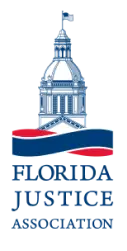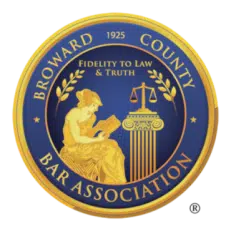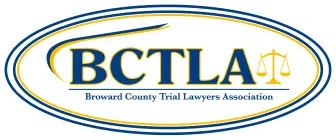 If a car accident occurs in Florida, the law requires police officers to visit the crash scene and document the incident. Their investigations may require them to take statements from the at-fault driver and the victim and interview witnesses.
If a car accident occurs in Florida, the law requires police officers to visit the crash scene and document the incident. Their investigations may require them to take statements from the at-fault driver and the victim and interview witnesses.
The blameworthy driver may admit fault, which expedites the trial process because if you have their statement, you can use it in court to prove fault and get compensated quickly. However, it’s more complicated than it sounds.
The Fifth Amendment of the US Constitution gives the at-fault driver the right to refuse to answer questions asked by law enforcement that may incriminate them. That right must be upheld. To avoid any violation of the constitution, the Sunshine State enacted the Florida accident report privilege that prevents the injured victim’s attorneys from using statements or admissions of fault made by the blameful party in a personal injury lawsuit.
Adherence to this statute complicates the entire legal process and can impact your ability to recover damages from the negligent party. Fortunately, you can partner with one of our personal injury attorneys at Eltringham Law Group, a dedicated personal injury law firm serving accident victims in Fort Lauderdale, Miami, Boca Raton, or the surrounding areas. Our attorney can obtain vital evidence & information from other sources during the discovery process.
During this discovery phase, we can review the crash report to establish what happened and identify any listed witnesses. Even though we are restricted from presenting the actual police report to the jury as evidence, we’ll leverage every resource at our disposal to find other ways to verify what happened. Our comprehensive investigation procedure incorporates various critical elements to ascertain the true sequence of events surrounding the incident. We make a meticulous effort to obtain the independent observations and liability assessment of the responding officer. Additionally, eyewitness testimonies are sought to present a comprehensive picture of the incident.
Equally important is the collation of video surveillance data from neighboring businesses and traffic cameras, which can provide a real-time chronology of events and serve as irrefutable evidence. Furthermore, in circumstances where we determine it’s necessary, we utilize the services of our technical experts to download and analyze the black box of the vehicle deemed at-fault.
For clarity, a black box, also known as an Event Data Recorder (EDR), is an electronic device installed in vehicles. Its primary function is to record various pieces of information pertaining to the vehicle’s operation immediately before, during, and shortly after a crash. This data can be instrumental in painting an accurate picture of the event in question.
What is the Statute Involving Florida Car Accident Report Privilege?
Under Florida Statute § 316.066(4), the car accident report privilege states that any statements made by individuals involved in a crash to law enforcement are inadmissible as evidence in any court proceedings, civil or criminal case. The parties required to interact with the investigating officer include the at-fault driver and the vehicle occupants involved in the crash.
As mentioned earlier, this privilege aligns with their Fifth Amendment rights, which protect the at-fault party from self-incrimination when an officer interviews them while documenting the facts of the incident to write an accident report. The privilege also restricts the law enforcement officer from testifying against the negligent driver, especially if their testimony is solely based on the statements made following an accident.
Florida Accident Report Privilege Exceptions
The car accident report privilege is quite broad, but it was designed to be as such. Nonetheless, you must note that it only covers initial statements made by the individuals required to speak to police officers at the accident scene. That includes the driver who caused the accident and other occupants in the vehicle at the moment of the crash.
Under Florida law, the car accident report privilege doesn’t generally apply to the following:
- Eyewitnesses and any other individuals who volunteer information
- A person who leaves the crash scene under some circumstances
- An individual who claims to be present at the crash scene but denies involvement in the incident
- A person who presents false statements in a report
- Spontaneous statements not made in response to any questions asked are generally not protected
- Excited utterances, such as if the at-fault driver claims that they were intoxicated or fell asleep on the steering wheel
Florida’s Car Accident Report “Privilege” Isn’t Always a Privilege
A “privilege” in legal terms means a special right or immunity granted or available to a particular individual or group. For example, the “marital privilege” prevents spouses from testifying against each other. Additionally, an “attorney-client privilege” gives a lawyer the right to conceal any information their client told them in confidence. However, there’s a gray area when it comes to the accident report “privilege.”
In 2019, the Second District Court of Appeal clarified the concerns about Florida accident report privilege during the case of Anderson vs. Mitchell. The negligent driver struck a pedestrian in a crosswalk. The injured pedestrian filed a personal injury claim to obtain compensation. The local police obtained the statements and generated the accident report, which they couldn’t use against the defendant during the trial. The defense lawyer advised their client not to answer any questions under oath regarding their statements at the accident scene, citing the accident report privilege under FS § 316.006(4).
The Second District Court held that all parties are entitled to discovery regarding any issue relevant to the case, as long as it’s not privileged. That said, no statute provides the basis for refusing to answer questions during discovery. The court continued that Florida’s accident report privilege isn’t a “true privilege” but rather a rule of inadmissibility in legal proceedings.
The court’s ruling on the issue can significantly impact injury victims’ claim outcomes and at-fault drivers. Although both parties may be restricted from using statements and reports at trial, there are many circumstances prior to trial where these statements can be helpful and valuable — such as a motion for summary judgment.
Partner with Eltringham Law Group for Your Personal Injury or Car Accident Claim
After many car crashes in our region, the real challenge begins with the at-fault drivers issuing statements to police officers. The caveat is that the accident report can’t be used in a trial.
Even so, the personal injury attorneys at Eltringham Law Group can discover relevant evidence to prove fault, including video surveillance, statements made on social media, driving logs, blood tests, and other accessible information. Contact us today for a free case review.
Car Accident FAQs
What should I do after an accident?
The statements made by the at-fault driver at the accident scene may be privileged. But if there are witnesses, obtain their names and contact information. If they’ve spoken to the at-fault driver, find out what the driver said about the accident. Additionally, take photographs of the accident scene (including skid marks and debris), property damage, and any visible injuries you’ve sustained.
Last updated Wednesday, May 22nd, 2024

 If a car accident occurs in Florida, the law requires police officers to visit the crash scene and document the incident. Their investigations may require them to take statements from the at-fault driver and the victim and interview witnesses.
If a car accident occurs in Florida, the law requires police officers to visit the crash scene and document the incident. Their investigations may require them to take statements from the at-fault driver and the victim and interview witnesses.




